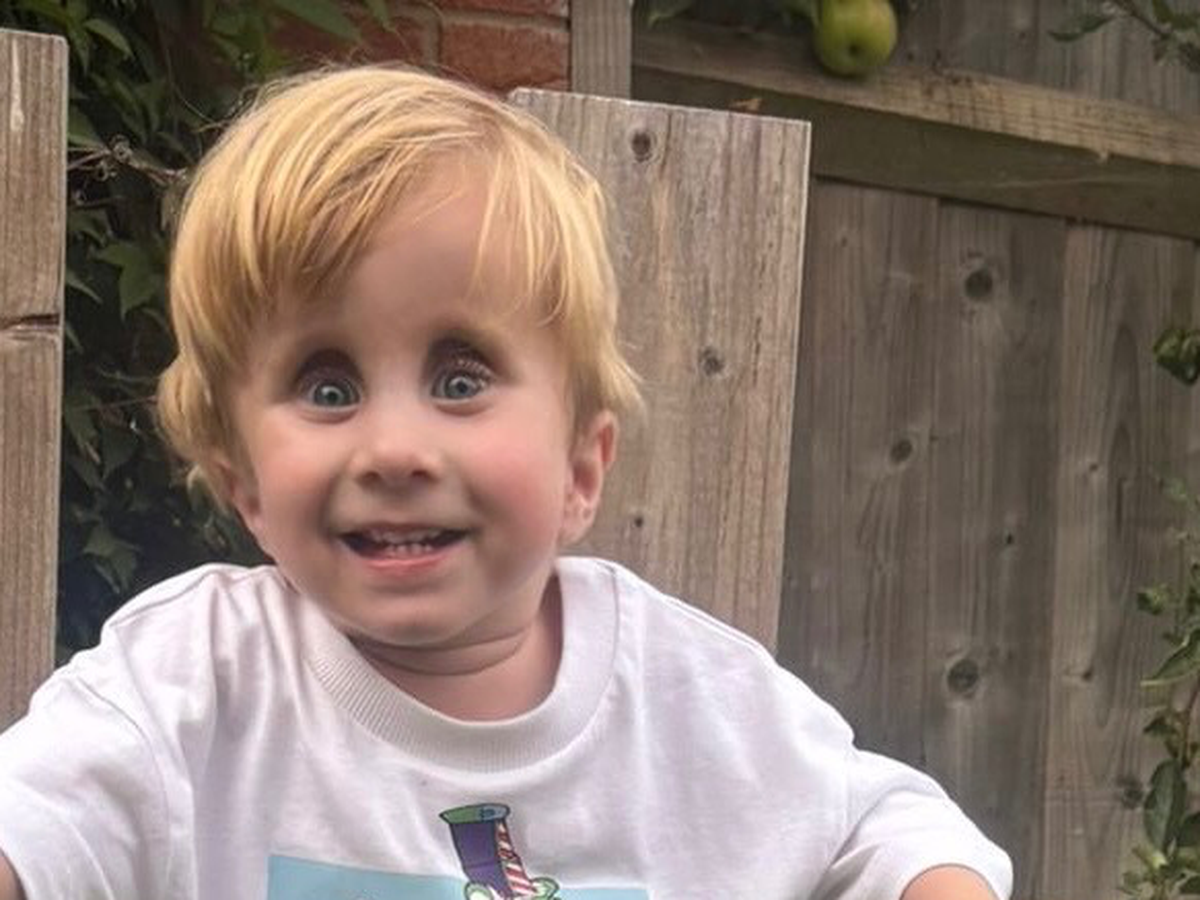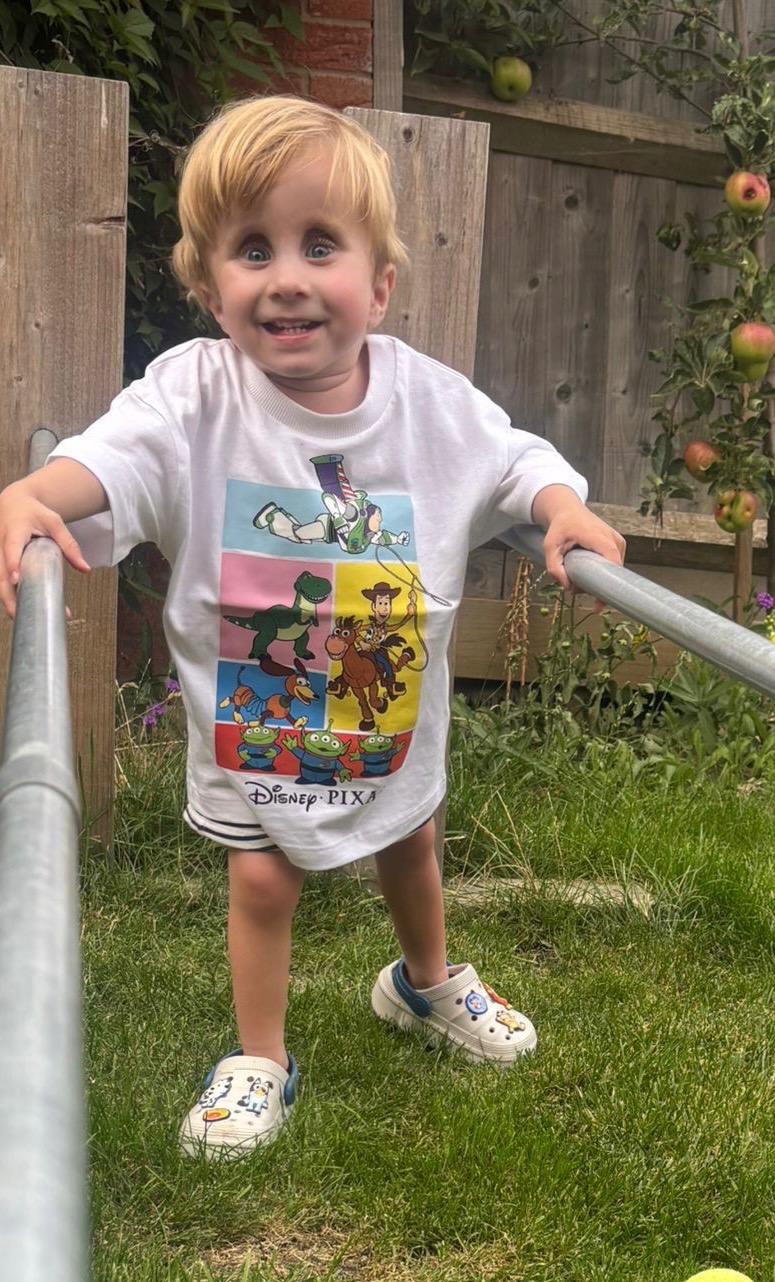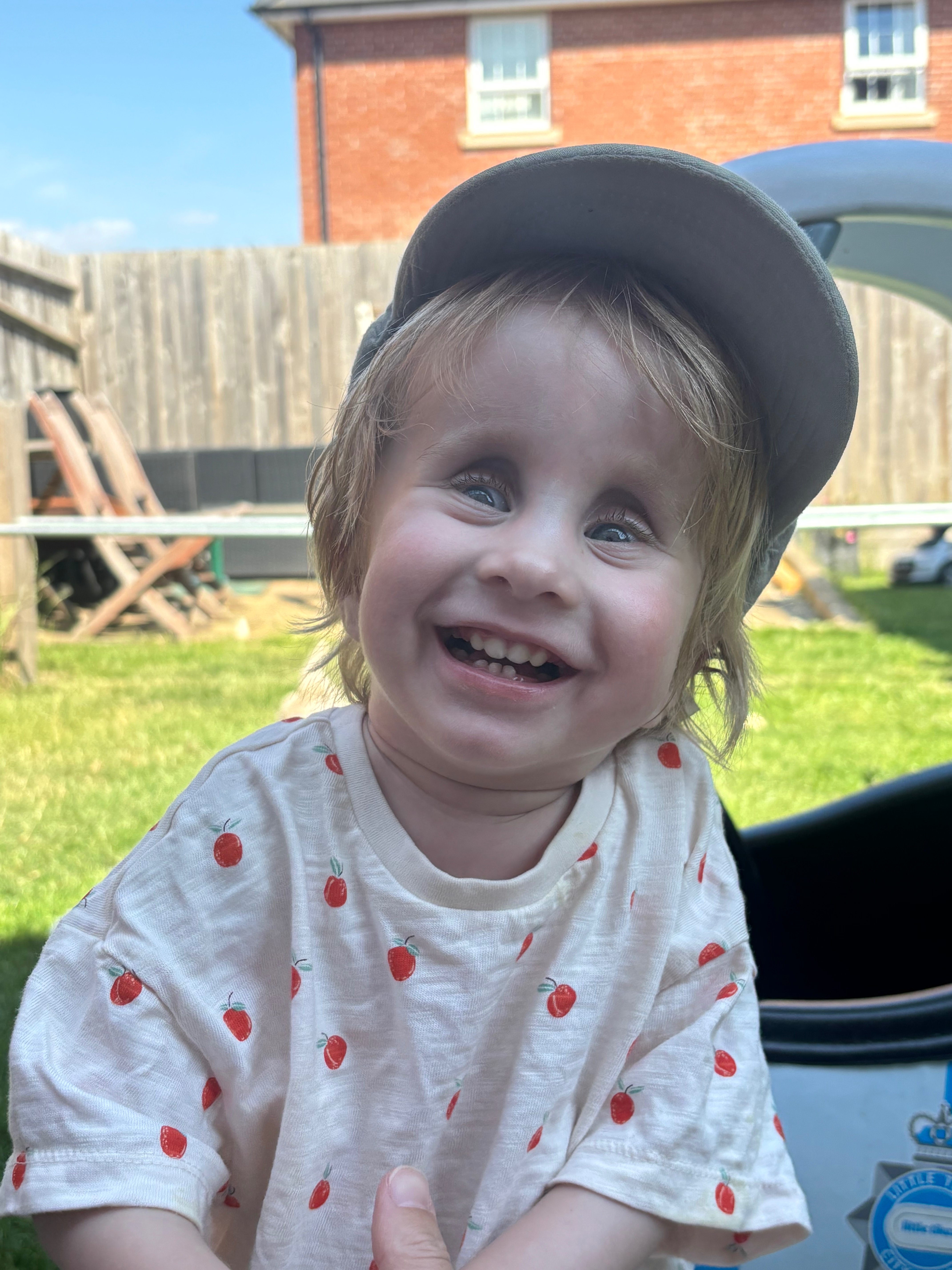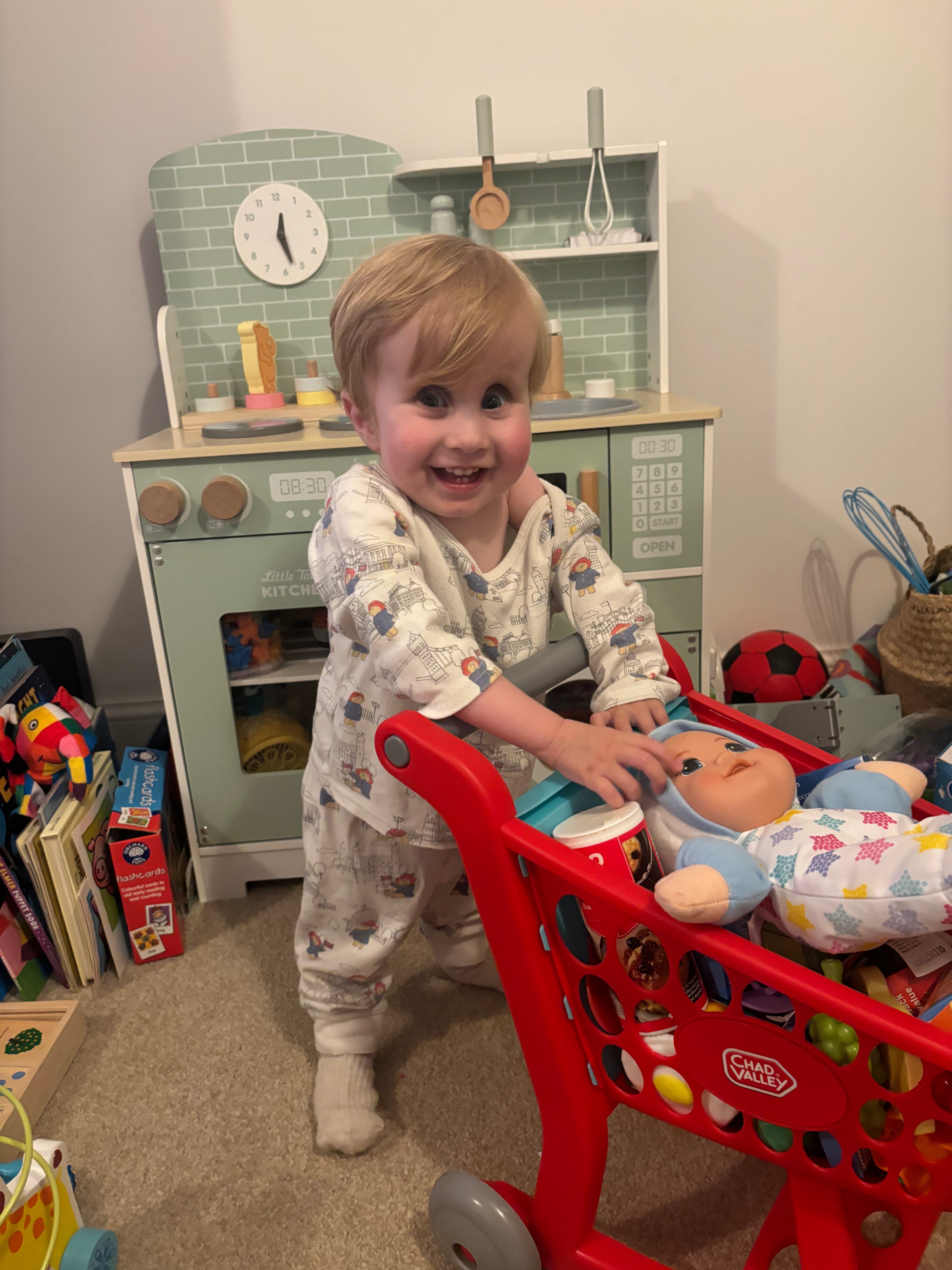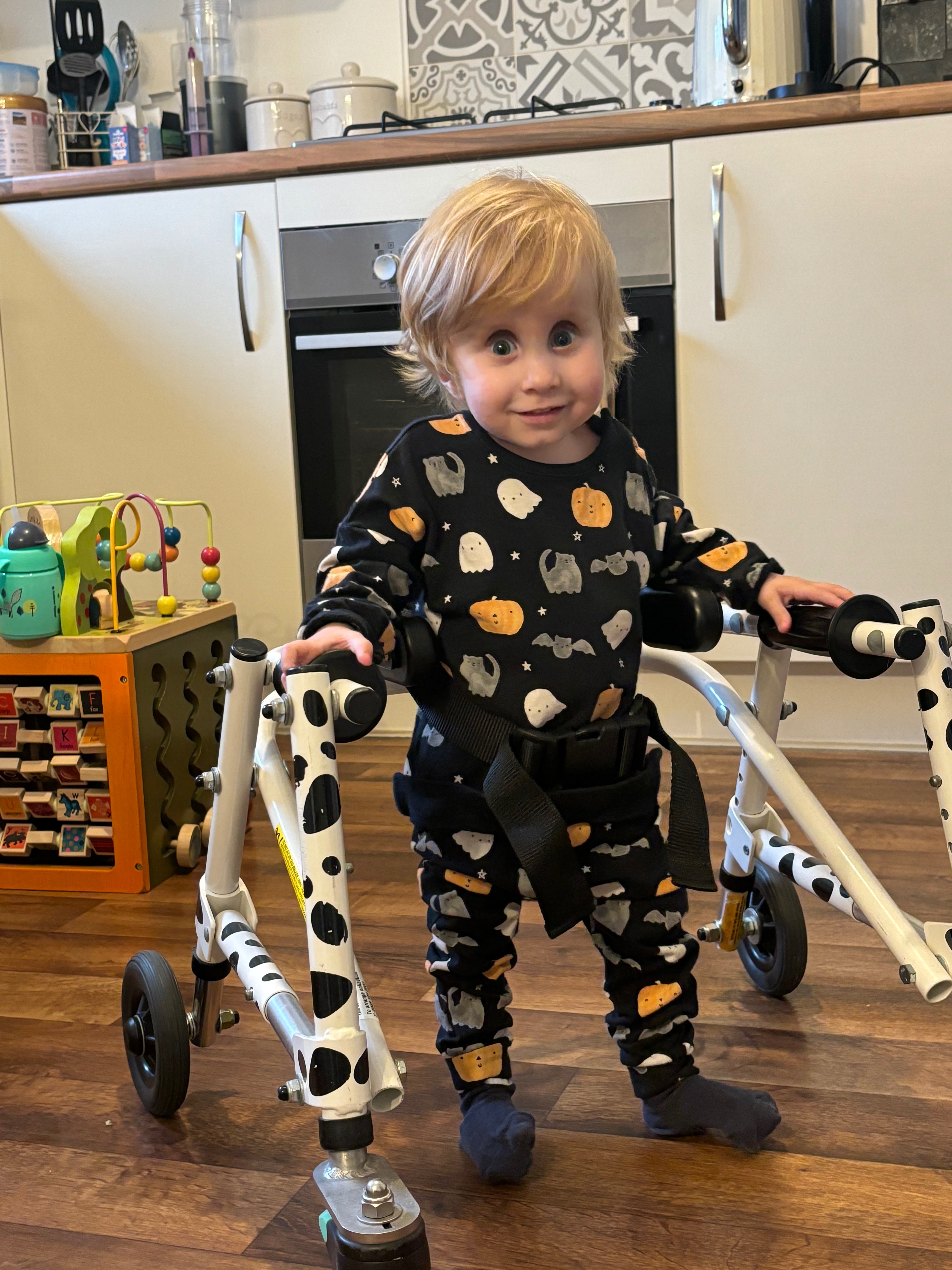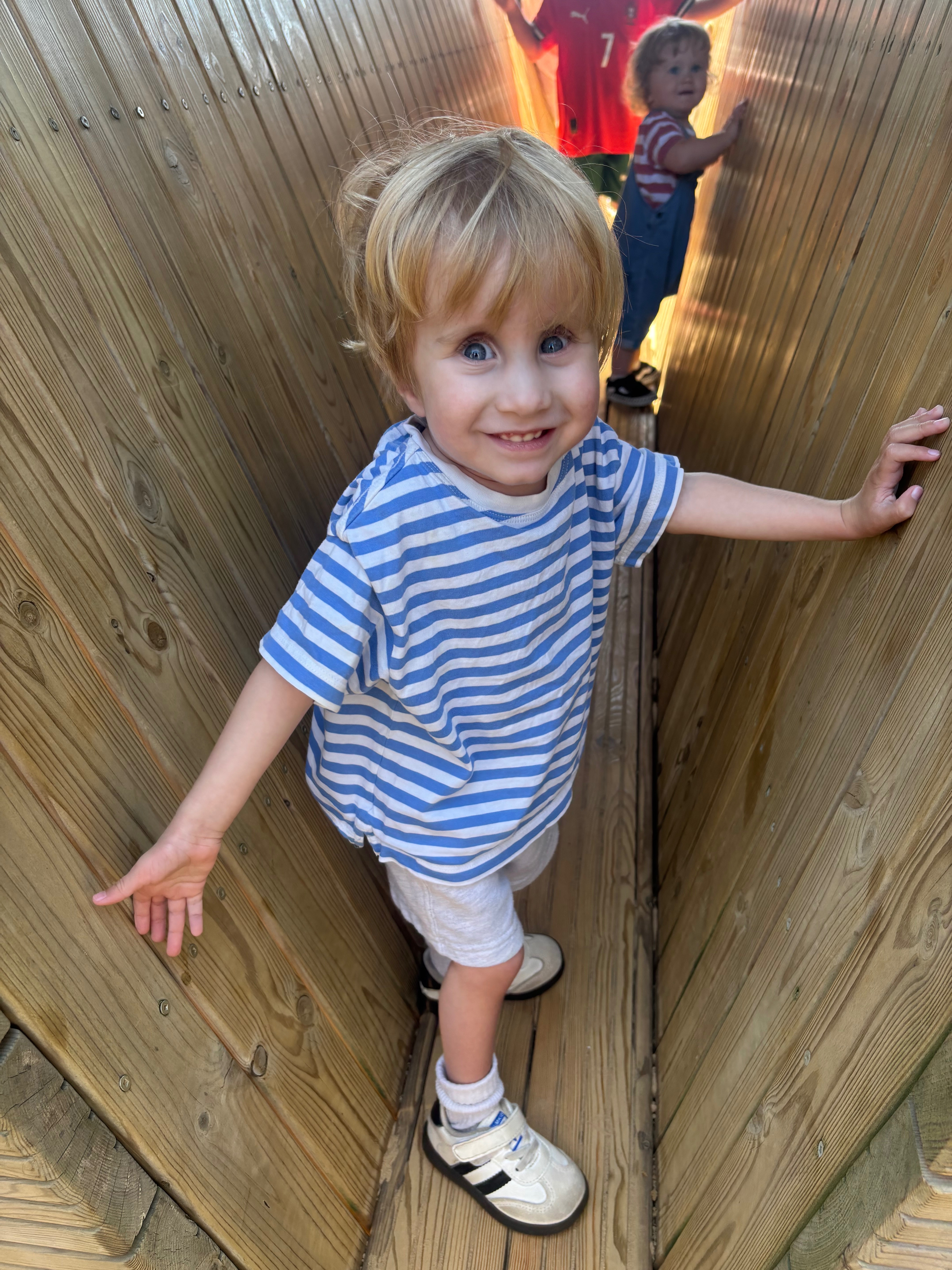As some of you may know, our eldest son George’s health journey has been incredibly challenging.
Those of you who know George will know he is the most courageous, resilient, determined, and bright little boy. At three years old, he desperately needs more targeted support to build his strength and reach his full potential. He’s currently determined to learn to crawl and walk, but we know that he needs more support to do this.
After hours dedicated to researching what could help him, Casey and I found an intensive physiotherapy programme at the NAPA Centre in London that’s shown remarkable results for children like George. We are grateful for some of the care the NHS has provided, but unfortunately there’s a gap in the support offered for children with rare conditions and complex needs like George, and this specialised therapy falls outside what the NHS can provide.
George’s intensive physiotherapy at the NAPA Centre will involve a personalised programme of targeted exercises to accelerate George’s progress toward crawling, standing, and walking – in a way that meets George’s specific needs.
We’re thrilled that, after nearly two years on the waiting list, George has been offered a rare cancellation slot in November. To make this happen, we need to self-fund:
• Intensive physiotherapy at NAPA Centre, London: £5,500
• Three weeks of nearby accommodation: approx. £2,500
• Later this year, a food-therapy course: up to £4,000
_________________________________
To give you a bit more background: George was born small for his age. By three months old, he wasn’t gaining weight and could barely manage half his milk feeds, so he was fitted with an NG tube. When that didn’t help, daily sickness took over. In his first year, we spent weeks at a time in hospitals for MRI scans, stomach and bowel imaging, ECGs, echos, sweat tests for cystic fibrosis, chest X-rays, countless blood tests, urine and stool samples - always searching for answers.
Despite every test, and seeing every specialist under the sun, we had no explanation for his poor appetite, weakness, and persistent vomiting. His growth plummeted and specialists were concerned, but no diagnosis came. Just before his first birthday, a genetic consultant suggested Russell-Silver syndrome, which was devastating as we knew it would impact the rest of his life, but it was also provided some answers for us. This was only to be ruled out months later by a specialist at Great Ormand Street Hospital, who agreed George displayed some symptoms of the condition, but did not meet all the criteria for the diagnosis. Since then, we have not received any further clarity on the cause of George’s condition. The uncertainty, and the anxiety of not knowing what’s ahead, can at times be overwhelming. Yet despite having no clear diagnosis, we’ve channelled our energy into what we can control: securing therapy to support George’s needs to help him thrive.
At age two, George began growth-hormone treatment, injected nightly by his dad, Casey, to boost his height and help him build muscle. It has meant that he can now sit independently and cruise furniture but still can’t crawl. However, even this therapy may not continue to be funded by the NHS if George doesn’t meet the growth targets set by the NHS. George does get some NHS physiotherapy in 30-minute home visits once a week for five-week blocks, but it only happens a couple of times a year. While this helps in building some strength, it’s far too sporadic and not enough to build the strength George needs to be able to crawl and move more independently.
George turned three in June, and lately he’s started bum-shuffling after his little brother. Every day he proves how fiercely he wants to join in with his peers and seeing his frustration when he can’t join in is absolutely devastating. Despite this frustration, his resilience astounds us every day.
We’ve waited nearly two years for private intensive physio. We feel incredibly lucky to secure this rare NAPA slot, but it comes at a huge cost. On top of therapy fees, we need to cover three weeks of accommodation.
This also comes at a time when we are preparing for the potential need to self-fund a food-therapy course if the NHS funding isn’t approved – a decision that’s down to local budgets. With the NHS facing increasing pressures, we are not optimistic that the NHS funding will be approved. This would cost a further £4,000. This therapy will be vital to give George targeted support to help him through his oral aversions which were triggered by having such a traumatic start to life with his tube feeding and constant sickness.
Sharing George’s struggles is out of our comfort zone, but we are doing so with the aim of getting George the very best help that he so rightfully deserves. Any contribution - no matter how small - or simply sharing this campaign means the world to us.
